Politburo member and Prime Minister Pham Minh Chinh with students of Dien Bien Province's Boarding School for Ethnic Minorities_Photo: VNA
The Party's leadership role in human rights and human rights education
Since its inception, our Party has always affirmed the value of human rights associated with national independence, national sovereignty and social progress. The Party's leadership role in human rights is demonstrated through the following contents:
Firstly, constantly supplement and perfect the system of viewpoints on human rights, and at the same time institutionalize to bring human rights education into schools . On the basis of absorbing and inheriting the common perception of the international community and based on the reality of Vietnam, our Party has determined a system of viewpoints on human rights and civil rights. In which, human rights are recognized as a universal value of humanity, deeply class-based, associated with national independence and sovereignty as well as with the history, tradition and level of economic development of the country. Throughout the process of leading the revolution, our Party has always attached importance to the work of ensuring and promoting human rights.
During the renovation period, the Party and the State have issued many resolutions and directives on this issue, such as Directive No. 12-CT/TW, dated July 12, 1992, of the Secretariat, on the issue of human rights and the viewpoints and policies of our Party; Directive No. 44-CT/TW, dated July 20, 2010, of the Secretariat, on human rights work in the new situation (1) , demonstrating the importance of raising awareness of human rights in the whole society, including the role of education. The 2013 Constitution and many current legal documents of the State of Vietnam all promote human rights, basic rights and obligations of citizens, as well as principles on building a socialist rule-of-law state. The provisions on human rights and citizens' rights in the Constitution are the highest legal foundation for the promulgation of legal documents on human rights and human rights education.
The Platform for National Construction in the Transitional Period to Socialism (supplemented and developed in 2011) affirms: “People are the center of the development strategy and at the same time the subject of development” (2) . Following that viewpoint, the Document of the 13th National Party Congress affirms: “Maximize the human factor; people are the center, subject, main resource and goal of development” (3) . Resolution No. 27-NQ/TW, dated November 9, 2022, emphasizes: “Respecting, protecting and ensuring human rights and citizens' rights; developing socialist democracy is the essence of the socialist rule of law state” (4) . It can be affirmed that respecting, protecting and implementing human rights has always been of great concern to our Party, State and people in all fields.
Second, integrate human rights into the legal education program to raise political and social awareness for cadres and party members.
Based on the Party's guiding viewpoints on human rights, many policies, programs and projects related to human rights education have been issued. For example: Decision No. 1309/QD-TTg, dated September 5, 2017, of the Prime Minister, approving the "Project on integrating human rights content into the education program in the national education system", with the view of integrating human rights content into the education program in a synchronous, unified and effective manner, updated and consistent with the progressive trends of the region and the world; Directive No. 34/CT-TTg, dated December 21, 2021, of the Prime Minister, on strengthening the implementation of the Project on integrating human rights content into the education program in the national education system; Decision No. 1079/QD-TTg, dated September 14, 2022, of the Prime Minister, approving the "Project on communication on human rights in Vietnam", emphasizing that communication on human rights needs to be implemented on all three main contents: dissemination and education of knowledge on human rights.
From the Party's guiding viewpoint and institutionalization of the policy on human rights education, human rights education programs in the political system from the central to local levels have been actively implemented. In political theory training programs at the Ho Chi Minh National Academy of Politics and provincial and municipal political schools, thematic content on human rights has been increasingly clearly and deeply integrated. This is the basis for raising political and legal awareness for cadres, party members, civil servants and public employees nationwide on human rights education.
Third, integrate human rights education into general and university education.
Human rights education plays a particularly important role in raising social awareness, helping to prevent and limit rights violations, providing knowledge, equipping skills, strengthening beliefs, helping each person to correctly perceive the meaning and value of rights, knowing how to protect their own rights, obeying the law and respecting the dignity, rights and freedoms of others (5) . Human rights education is educating patriotism, awareness of the rule of law, spirit of cooperation and responsibility to the community - a solid foundation for creating social consensus and great national unity (6) . Based on the Party's viewpoints and policies, the State's policies, the education and training sector has concretized the content of human rights into the general education and university programs, integrating human rights content into textbooks and curricula of subjects such as Civic Education, History, Literature, Legal Education, Local Education, especially in the 2018 General Education Program. In addition, many universities in law, pedagogy, social sciences and humanities have developed the subject "Human Rights" as an official subject.
Fourth, our Party's foreign policy viewpoint on human rights.
The Party's foreign policy stance on human rights is based on the principle that human rights issues must be resolved through peaceful dialogue and on the principles of equality, respect for independence, sovereignty, territorial integrity, non-imposition and non-interference in each other's internal affairs. Vietnam's election to the United Nations Human Rights Council for the 2023-2025 term and the publication of national reports on human rights under the Universal Periodic Review (UPR) demonstrate the Party's capacity to put into practice the Party's stance in building a national image associated with human rights. This further requires the inevitable requirement of strengthening human rights education in order to fully implement the commitments that Vietnam has participated in and is a member of, enhancing Vietnam's position and prestige in the international arena.
Achievements in human rights education in Vietnam in recent times
For Vietnam, “protecting human rights and educating about human rights is the task of the entire political system, with a national, comprehensive, and inclusive nature; protecting human rights and educating about human rights is under the leadership of the Party, the management of the State, and the participation of the people” (7) . Human rights education is not simply imparting knowledge, but is the process of arousing the sense of responsibility, the capacity to exercise the rights and obligations of each citizen within the framework of law, morality, and the community, as shown in the following results:
Firstly , Vietnam is a member of many important international treaties on human rights (currently participating in 7/9 of the most important treaties of the United Nations). The provisions of the convention all stipulate the obligation of member states to educate on human rights. The United Nations has also issued many programs and plans on human rights education, such as: The World Conference on Human Rights (1993) proposed the Declaration of the Decade of Human Rights Education (1995 - 2004), currently approved 5 stages of human rights education (8) , focusing on the subject of human rights education for children and youth. International standards create a legal basis and orientation for each country to develop policies and laws on human rights and human rights education.
Monday , Vietnam has made great achievements in universalizing primary and secondary education, with a literacy rate of over 95% for the population aged 15 and over. This is a prerequisite for people to access universal human rights values, such as the right to education, the right to development, and the right to participate in social life. At the same time, it provides people with a legal and intellectual basis for consensus and cooperation for the common good, contributing to strengthening national solidarity.
Third , many educational programs have been designed specifically for ethnic minorities, women, migrant workers, and people with disabilities, helping them better understand their legal rights, development opportunities, and civic responsibilities. Training courses on land use rights, access to education, and healthcare in ethnic minority areas and remote areas help people feel more confident in participating in social life. Community communication programs on gender equality and domestic violence prevention and control help raise awareness, respect for citizens' rights and legitimate interests, thereby building sustainable community relations. The movement "All people unite to build a cultural life" and access to rights at the grassroots level have been widely implemented in localities, closely linked to the implementation of human rights in the community, such as the right to access information, the right to supervision, and the right to participate in political and social activities in villages, hamlets, and residential areas. In many localities, people have been educated about children's rights, women's rights, the rights of people with disabilities, and the right to access public services through coordinated programs between the Fatherland Front, socio-political organizations, and local authorities.
Fourth , the role of the young generation in social activities, volunteering, and environmental protection is enhanced. Human rights education is effectively integrated into the activities of socio-political organizations, inspiring young people, students, and pupils to actively participate in volunteer programs, environmental protection, and support for the disadvantaged. This is demonstrated through a number of social programs, such as the "Green Summer" campaign, "Support to School", "Spring of Love", etc., contributing to spreading the values of respect for dignity, solidarity, and compassion in the spirit of human rights education.
The document of the 13th National Party Congress requires: “Strongly shift the educational process from mainly equipping knowledge to comprehensively developing learners’ capacity and qualities; focus on educating ideals, ethics, lifestyle, life skills, civic awareness...” (9) . Building a strong country is not only about economic development, science and technology, but must also focus on comprehensive human development, maximizing the creative capacity and dignity of each individual. In modern society, human rights are the “measure” of civilization and progress. Human rights education plays a key role in building civic ethics, awareness of the rule of law, democratic spirit and community responsibility, which are indispensable foundations of a civilized and democratic society.
Our Party and State strive to care for, protect and promote human rights_Photo: Document
Strengthening the Party's leadership role in human rights education
Vietnam is entering a new era of development, especially in the context of the strong development of science, technology, innovation, and digital transformation, which requires new awareness and vision of human rights education. To further promote the Party's leadership role in human rights education, it is necessary to focus on the following tasks:
Firstly , perfecting the system of policies and laws related to human rights in a synchronous, modern direction, consistent with international practices and the cultural and historical characteristics of Vietnam. Promoting humanistic values and fine traditions of the Vietnamese people in respecting, protecting and promoting human rights; learning from good experiences of advanced countries in the world. Gradually building a culture of human rights, respecting, ensuring and protecting human rights in society. Specifically defining the content, form and methods of human rights education, and the subjects of human rights education, with special attention to cadres, party members, armed forces, students, businessmen, religious people, ethnic minority areas, and people with few people.
Second , develop and implement human rights education programs in the national education system, especially at the general education level and in the cadre training program. Integrate human rights education with education on ethics, law, history and patriotic traditions. It is necessary to closely, synchronously and effectively coordinate the leadership and direction of Party committees at all levels with the management and operation of state agencies, socio-political organizations, educational institutions, press agencies, media and the community in implementing human rights education work;
Third , promote the role of press, publishing, information, media, cultural and artistic agencies in propagating, reflecting and spreading humanistic, democratic and progressive values associated with human rights. Focus on propagating the Party's viewpoints, guidelines and policies, the State's policies and laws on human rights; international conventions on human rights to which Vietnam is a member with modern and diverse forms and methods, taking advantage of the achievements of the scientific and technological revolution and digital transformation. Strengthen international dialogue and cooperation on human rights, thereby clarifying Vietnam's achievements, refuting false and hostile arguments, taking advantage of the guise of "democracy" and "human rights" to sabotage our Party and State.
Fourth , continue to deeply and comprehensively innovate the content, programs and methods of human rights education suitable for all learners, in which the content of human rights education needs to be linked to the issue of building a new socialist human being, promoting the role and value of socialist human rights. Continue to develop and implement the Project to incorporate human rights content into the education program in the national education system, and implement human rights education in the overall Education Development Strategy to 2030, with a vision to 2045.
Fifth , make the content of the struggle to refute the distorted and erroneous arguments of hostile forces on human rights and human rights education a mandatory topic of activities of Party cells, consider this as the content of periodic review in Party cell and Party committee activities, and as a criterion for evaluating and classifying Party committees, Party organizations and Party cadres and members annually. Promote the exemplary role of pioneering cadres and Party members in studying and implementing propaganda on human rights, and be a shining example for the masses and people to follow. Regularly inspect, supervise and urge the leadership, direction and organization of the implementation of the Party's policies and regulations and the State's laws on human rights education. Build and develop a team of experts, teachers, lecturers and reporters on human rights.
In the new era, strengthening the Party's leadership in human rights education is a key factor in successfully implementing the Party's viewpoints, guidelines, and policies, and the State's policies and laws on human rights. It is one of the factors contributing to promoting the strength of national solidarity and building a strong and prosperous Vietnamese society./.
----------------------
(1) See: Directive No. 12-CT/TW, dated July 12, 1992, of the Secretariat, on human rights issues and the viewpoints and policies of our Party; Directive No. 44-CT/TW, dated July 20, 2010, of the Secretariat, on human rights work in the new situation.
(2) See: Platform for national construction during the transitional period to socialism (Supplemented and developed in 2011), https://tulieuvankien.dangcongsan.vn/ban-chap-hanh-trung-uong-dang/dai-hoi-dang/lan-thu-xi/cuong-linh-xay-dung-dat-nuoc-trong-thoi-ky-qua-do-len-chu-nghia-xa-hoi-bo-sung-phat-trien-nam-2011-1528
(3) Documents of the 13th National Congress of Delegates , National Political Publishing House Truth, Hanoi, 2021, vol. I, p. 47
(4) See: Resolution No. 27-NQ/TW, dated November 9, 2022, the 6th Conference of the 13th Party Central Committee on continuing to build and perfect the socialist rule-of-law State of Vietnam in the new period, https://tulieuvankien.dangcongsan.vn/he-thong-van-ban/van-ban-cua-dang/nghi-quyet-so-27-nqtw-ngay-09112022-hoi-nghi-lan-thu-sau-ban-chap-hanh-trung-uong-dang-khoa-xiii-ve-tiep-tuc-xay-dung-va-9016
(5) Speech by Prof. Dr. Nguyen Xuan Thang, Politburo member, Director of the Ho Chi Minh National Academy of Politics, Chairman of the Central Theoretical Council at the Conference of the Executive Board of the Project "Incorporating human rights content into the education program in the national education system in 2024"
(6) Documents of the 13th National Congress of Delegates , op. cit ., p. 145
(7) Thanh Giang - Hoang Lam: Human rights education is the task of the entire political system, with a national, comprehensive, and inclusive nature, Nhan Dan Electronic Newspaper , December 11, 2024, https://nhandan.vn/thu-tuong-pham-minh-chinh-chu-tri-hoi-nghi-toan-quoc-ve-giao-duc-quyen-con-nguoi-post849756.html
(8) As early as 1948, the United Nations General Assembly adopted the Universal Declaration of Human Rights. Since then, the United Nations has adopted five stages of human rights education; the fifth stage was officially launched worldwide on December 10, 2024.
(9) Documents of the 13th National Congress of Delegates , op. cit ., p. 232
Source: https://tapchicongsan.org.vn/web/guest/van_hoa_xa_hoi/-/2018/1102702/tang-cuong-su-lanh-dao-cua-dang-doi-voi-cong-toc-giao-duc-quyen-con-nguoi.aspx



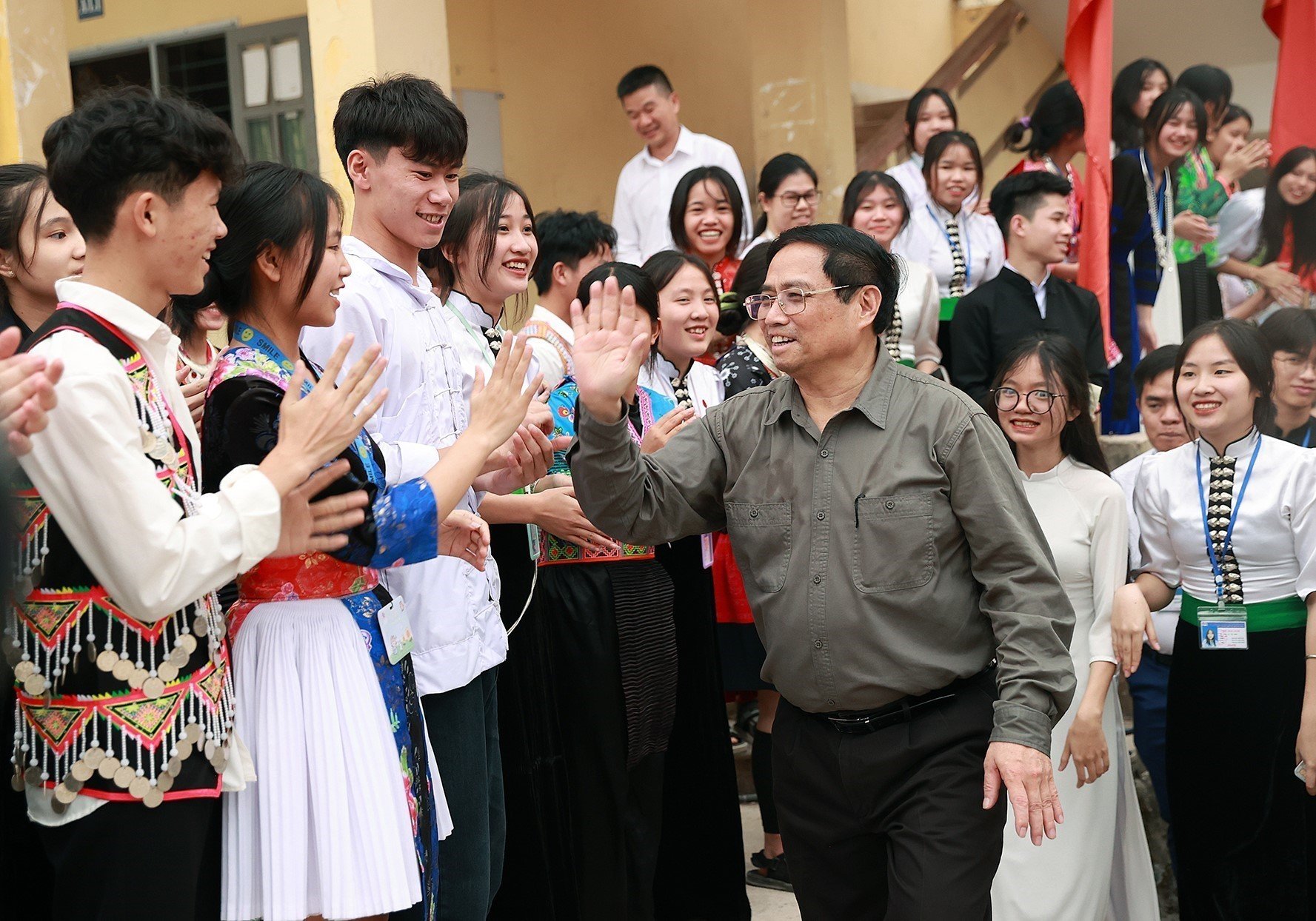
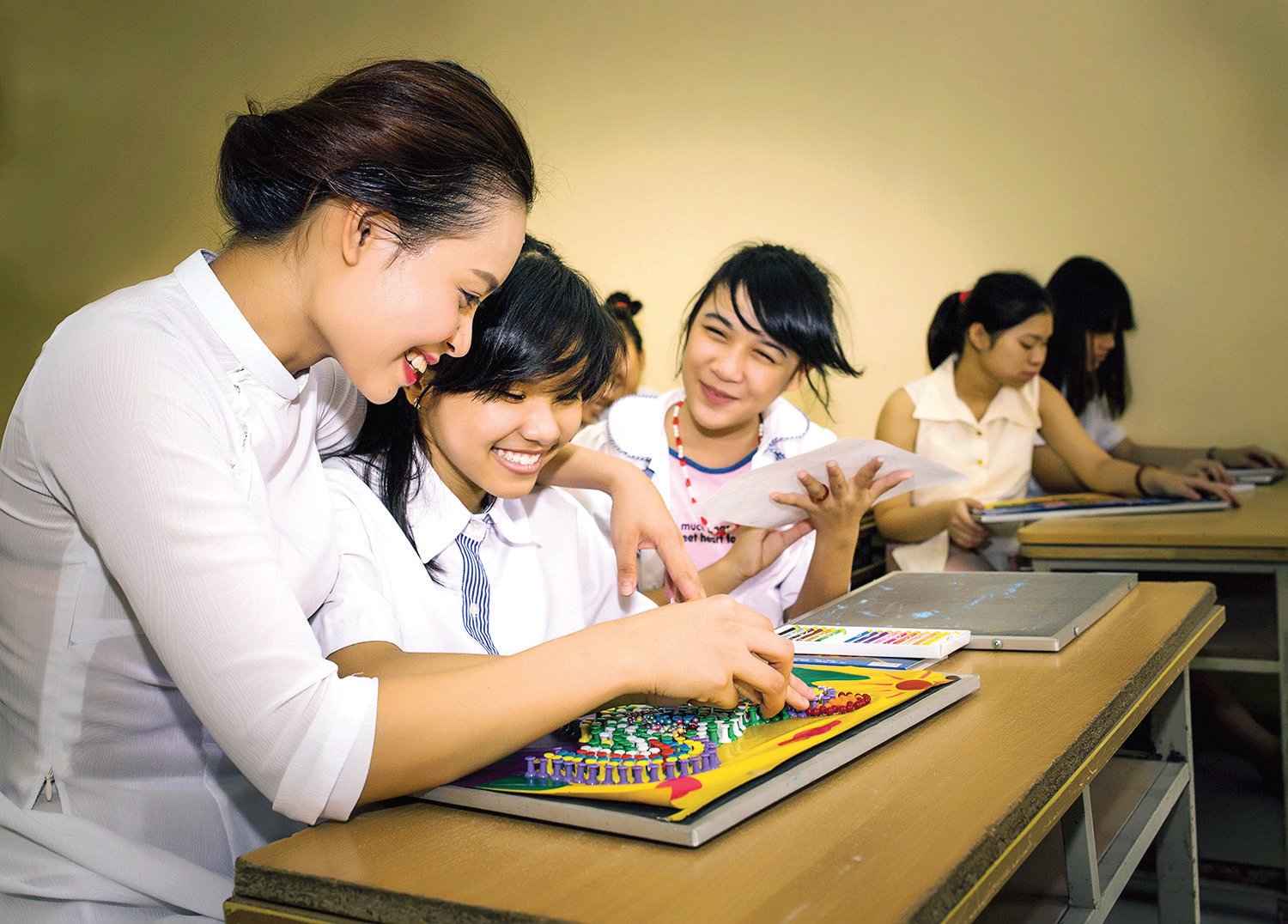

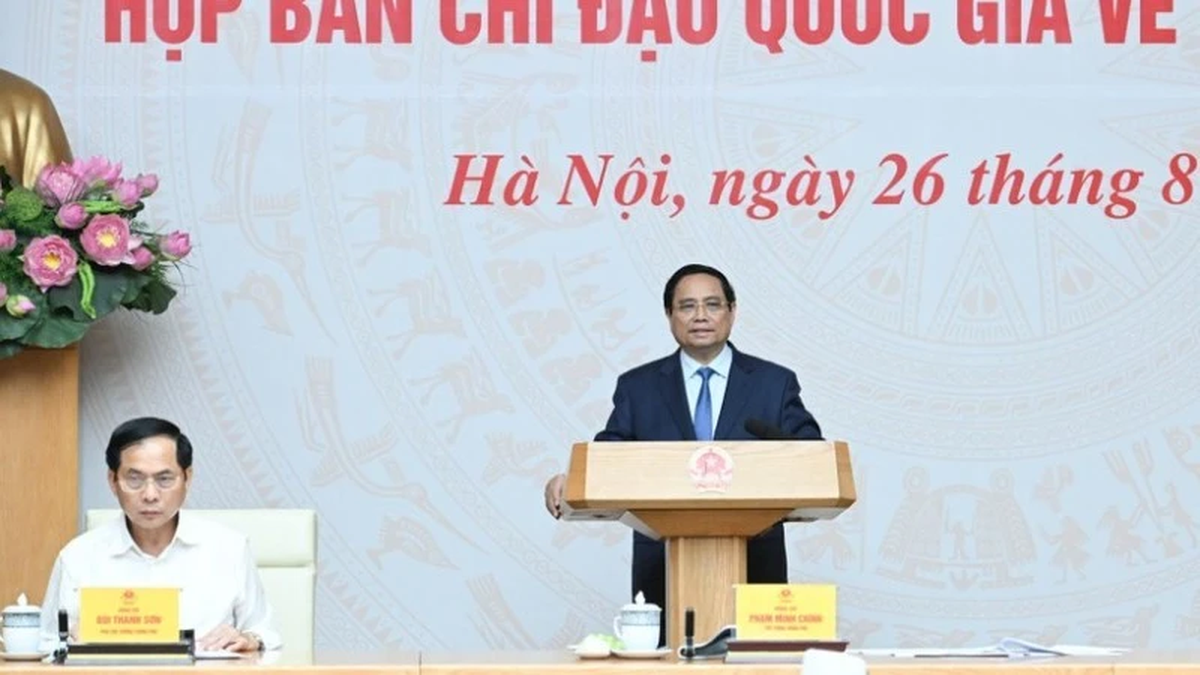
![[Photo] Brilliant red of the exhibition 95 years of the Party Flag lighting the way before the opening](https://vphoto.vietnam.vn/thumb/1200x675/vietnam/resource/IMAGE/2025/8/27/e19d957d17f649648ca14ce6cc4d8dd4)
![[Photo] Prime Minister Pham Minh Chinh chairs meeting of National Steering Committee on International Integration](https://vphoto.vietnam.vn/thumb/1200x675/vietnam/resource/IMAGE/2025/8/26/9d34a506f9fb42ac90a48179fc89abb3)
![[Photo] Prime Minister Pham Minh Chinh receives CEO of Samsung Electronics](https://vphoto.vietnam.vn/thumb/1200x675/vietnam/resource/IMAGE/2025/8/26/373f5db99f704e6eb1321c787485c3c2)
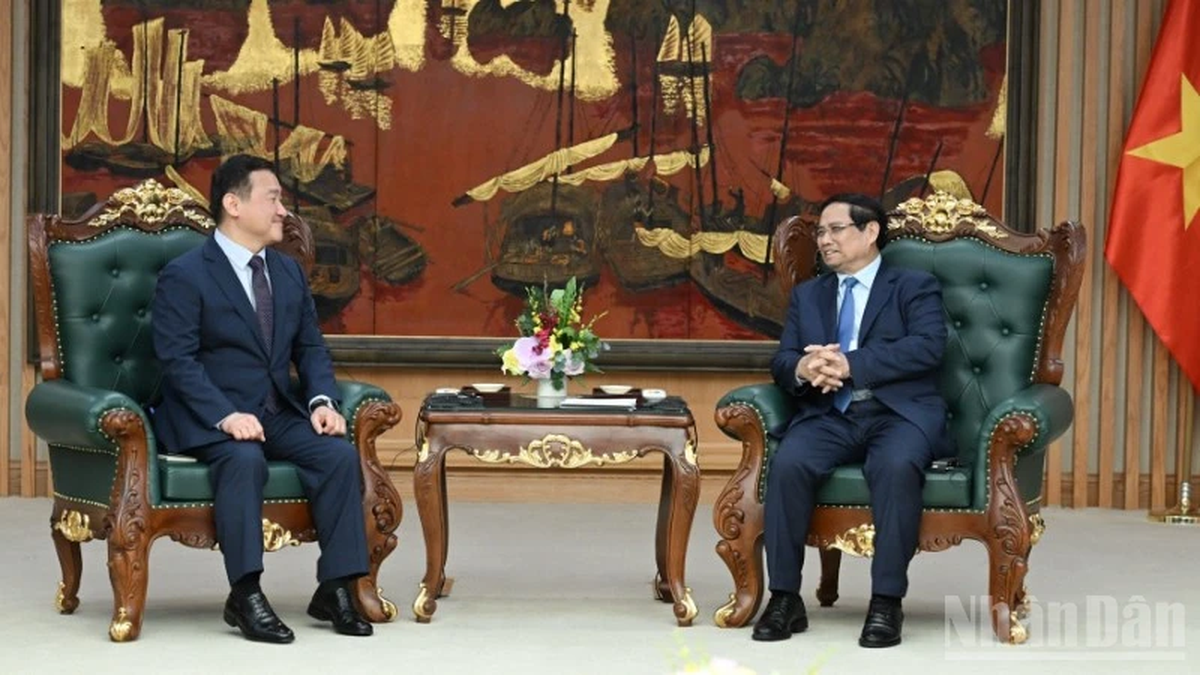
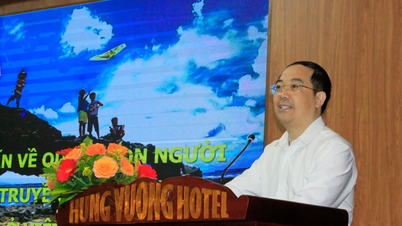



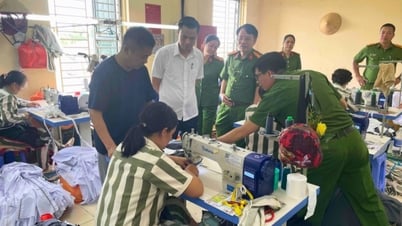

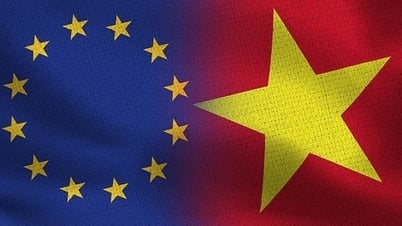
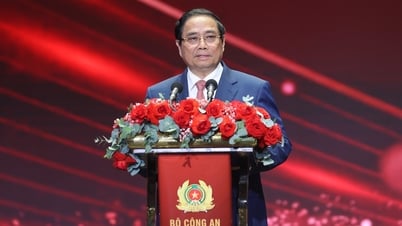



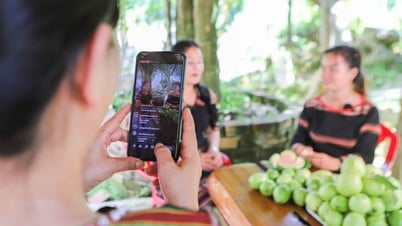

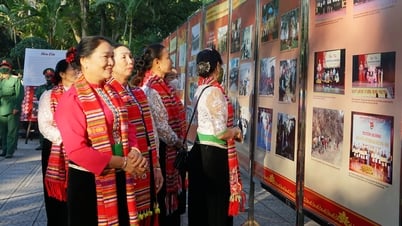

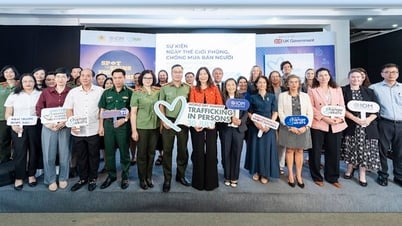



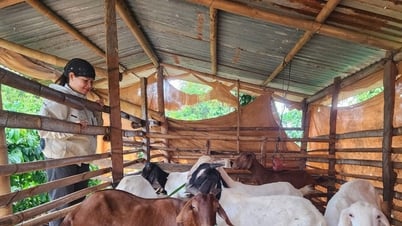

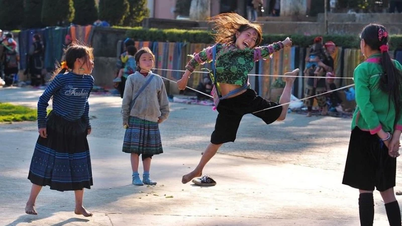

































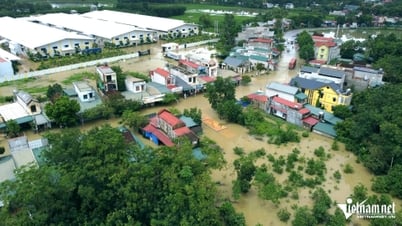
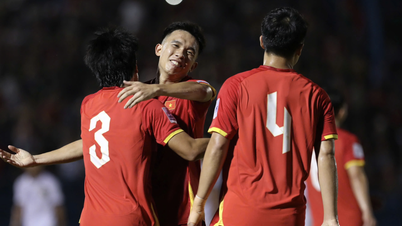
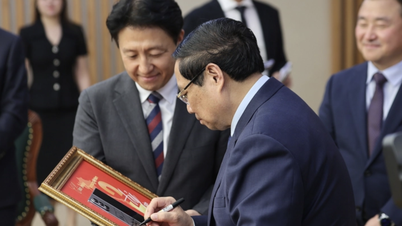
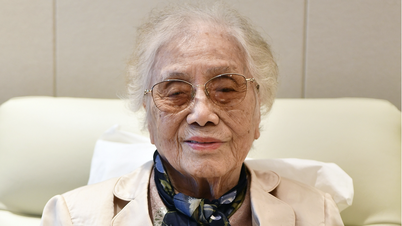

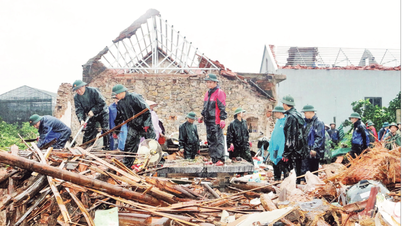
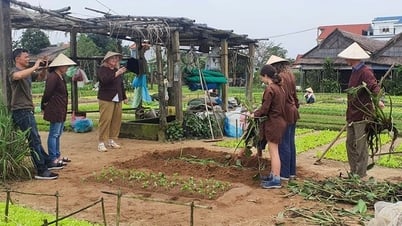

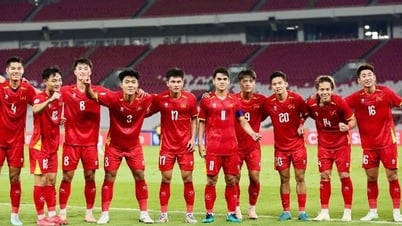

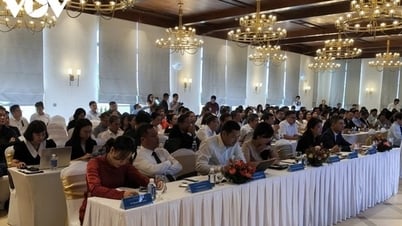
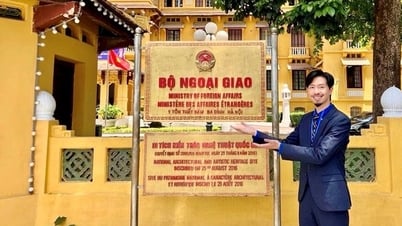
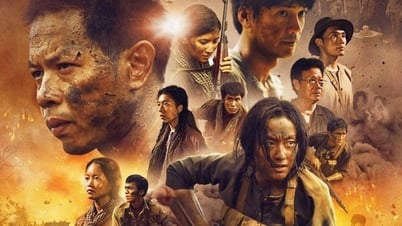
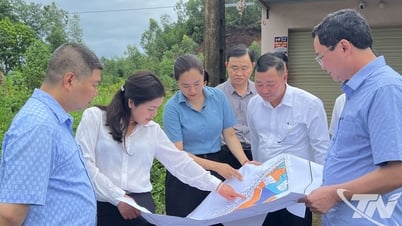

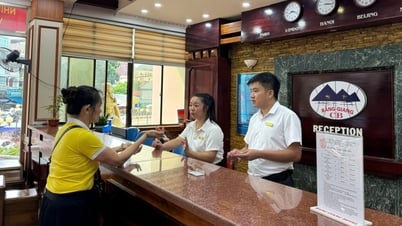

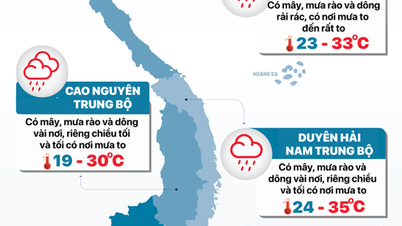

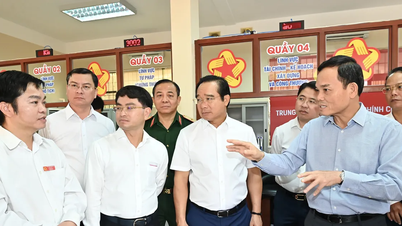
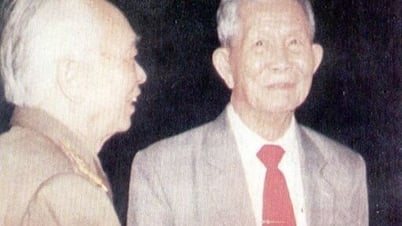

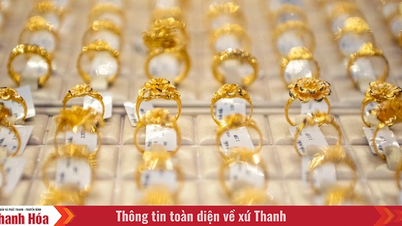











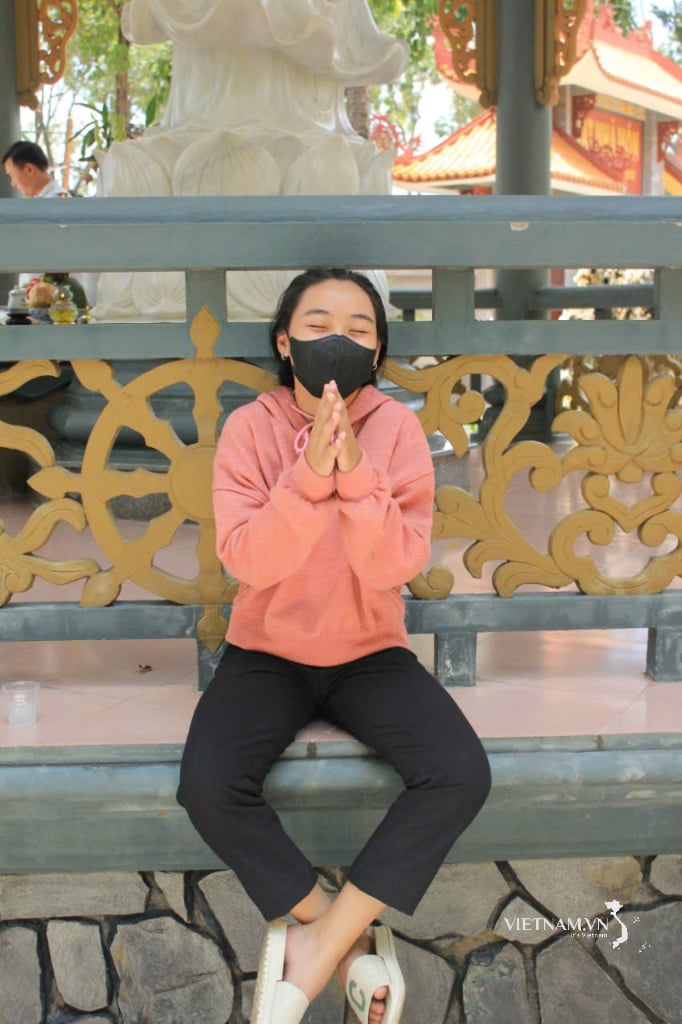

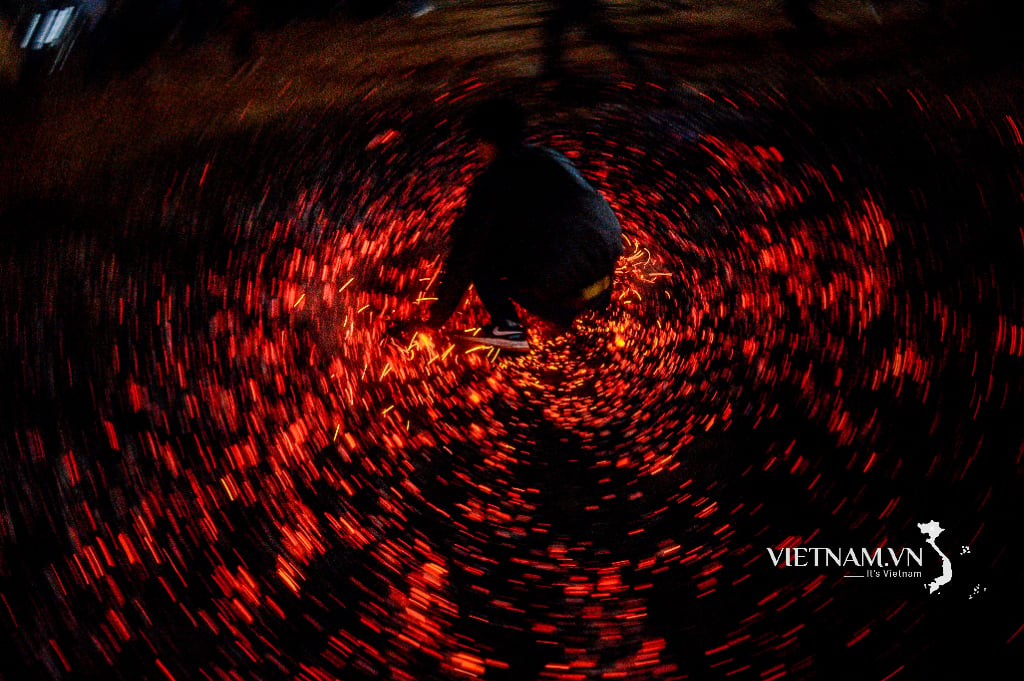

Comment (0)